Debbie Lori Kaye - Sweetheart Of The Sault
Debbie Lori Kaye - The Little Girl with the Big Voice
Sweetheart of the Sault By Robert Williston April 5, 2025
Deborah Kaye, known professionally as Debbie Lori Kaye, was a diminutive dynamo, a singer, guitarist, and songwriter whose soaring voice and magnetic charm made her a standout figure in 1960s Canadian pop and country music.
Born on May 6, 1950, in Auburn, New York, Debbie’s early life was shaped by music and media. Her father, Dave Carter, was a pioneering radio and television personality who served in the U.S. Marines during World War II. After his ship was damaged and docked in Bermuda for repairs, he met Debbie’s mother — a young Portuguese-Bermudian woman — and brought her back to the United States. However, the small town of Weedsport, New York, proved unwelcoming to Debbie’s mother, so the family eventually relocated to Bermuda. There, Dave Carter found work at ZBM radio and television, launching a career as a beloved island broadcaster.
In Bermuda, Dave introduced Calypso and island music to his show, but soon began promoting country music — his true love — which gained unexpected popularity with local audiences. Debbie began performing at church with a ukulele gifted by her uncle and made her first television appearance on her father's children’s program, Junior Club, broadcast live on ZBM. Her earliest performances were simple, heartfelt, and often featured other young talents her father hoped to promote.
Her first recording was made for her father’s independent label, D-D Records, and titled Songs My Daddy Taught Me. Debbie remembered little of the sessions, other than that the cover featured a photo of her and her father. Though no known copies of the record survive, it marked her very first experience in the studio. Other artists recorded by Dave Carter included Norman Dawson, Valerie (a teenage Bermudian singer), and Carter himself on harmonica. The label was short-lived, but formative.
Eventually, the family moved to Thunder Bay, then frequently back and forth to Sault Ste. Marie. Debbie recalled beginning school in one town and finishing the grade in another, often moving in the middle of the night when money ran short. Mattresses were tied to the roof of the car and clothing stuffed into cardboard boxes. Despite this upheaval, her musical education deepened. In the Soo, she was gifted her first guitar — a Gibson J-45 — and began accompanying her father at community halls across Northern Ontario. They performed at nearly every small-town venue, from Moffat to Kakabeka Falls, with Dave often broadcasting live shows via competing local stations (CKCY and CJIC) using side-by-side microphones.
At the age of 13, Debbie joined the local rock band (Those) Rogues as a “chick singer,” a common term at the time. The group performed school dances and “sock hops,” including gigs in Desbarats and Blind River. Though she never recorded with them, Debbie left a strong impression, remembered for her wild go-go boots and bold stage presence. She also worked weekends at CKCY while attending high school, learning the ropes of radio production.
In 1964, local songwriter Pat Bestall (son of CKCY manager Al Bestall) wrote a song for Debbie titled "Picking Up My Hat." It was first recorded during a live mall show at Stedmans and sent by Al to Columbia Records in Nashville. The timing was ideal, producer Frank Jones of Columbia Records invited Debbie to Nashville, and in early 1965, Columbia signed her to a seven-year recording contract. While recording in Nashville, Debbie recalled meeting a young Kris Kristofferson in the Columbia studios. “He was just a guy with a guitar back then,” she said, “but you could already tell there was something special.”
Columbia, however, struggled to position her between country and MOR (middle of the road), which affected the consistency of radio airplay. “They didn’t know what to do with me,” she later said, “because I didn’t fit neatly into either format.” Despite this, she recorded with top Nashville session players and performed early renditions of Kristofferson’s songs.
Her debut single, "Picking Up My Hat," entered the RPM Country Singles chart at #1 on February 8, 1965, and remained there through August — returning to the top spot again in December. Columbia promoted the release alongside major U.S. acts like Barbra Streisand and The Byrds in dealer sheets — a remarkable endorsement for a Canadian teenager.
In the summer of 1965, Debbie made her national debut at the Canadian National Exhibition (CNE) Grandstand Show, performing in Sights and Sounds of the Sixties - a lavish musical revue produced by Jack Arthur. Debbie had auditioned in Toronto through agent Gerry Lodge, singing Patsy Cline songs on her oversized guitar. Accepted immediately, she was billeted with the Ross family, where daughter Hillary, a “Wildcat” dance troupe member, taught her choreography. Debbie, who had never danced before, recalled being “scared silly,” but embraced the challenge.
She shared the stage with Bob Hope, Victor Borge, and The Liverpool Set during the 1965 CNE Grandstand Show, performing in the high-energy “Discotheque” segment backed by the Canadiana Symphony Orchestra under the direction of Howard Cable. With Bob Hope, she also performed the comedic number “It’s Drexal” and took part in the show’s patriotic finale, “You’ve Got a Flag – Wave It,” arranged by Cable. Her vocals were featured on the official 45rpm release From the CNE Grandstand Spectacular – Sights and Sounds of the Sixties, which included her solo “I Wanna Hear That New Sound.” Debbie later recalled rehearsing with Bob Hope in a Toronto hotel room, calling it an unforgettable learning experience that taught her “so much about big stage performance.”
Her time with Howard Cable was especially formative. She described him as “a true gentleman and professional” who instilled in her a strong sense of interpretation, presence, and discipline. The experience — combined with her rising chart success — helped cement Debbie as one of Canada’s most promising young stars.
Though Debbie emerged from the pop-country world, she had firsthand exposure to the Canadian folk revival. In the mid-1960s, she often found herself wandering the streets of Toronto’s Yorkville late at night, drawn in by the glow and sound of the local coffeehouses. Alone but curious, she slipped into smoky rooms where she witnessed early performances by artists like Joni Mitchell and Ian & Sylvia. It was a formative contrast: while Debbie was performing in go-go boots with full orchestras and choreographed numbers on stages like the CNE Grandstand, the Yorkville scene was raw, intimate, and steeped in the singer-songwriter ethos. She appreciated both worlds, but acknowledged that her label’s expectations steered her toward a more polished, showbiz image — even as her heart responded to the honesty and simplicity of the folk scene.
Radio DJs across Canada were unanimous in their praise: “At last — you people have sent me a disc I can rave about! This girl is terrific... CAN’T MISS. SURE.” — Larry Snelgrove, CKYL Peace River “One of the best outings we’ve heard in a long time... Without question, a big thing. SURE.” — Bill Payton, CFOM Québec She was described in RPM as: “Only 4’2”, with a mischievous manner… reminiscent of Italy’s Rita Pavone.” “A tiny package of dynamite with a voice as big as Texas.”
Debbie’s entry to The Tommy Hunter Show came by way of a timely audition arranged by Saul Holiff, then-manager of Johnny Cash and The Statler Brothers. A producer who had seen her perform at a U.S. state fair urged her father to drive to London, Ontario, for a meeting. That audition proved successful—just as regular cast member Pat Hervey was stepping back due to pregnancy, Debbie stepped into the spotlight. She lived briefly with the secretary of Art Snider (musical director of the show) and became close with the cast, calling the Allen Sisters her “big sisters” and the Rhythm Pals “uncles.”
“Funny,” she noted later, “when I got pregnant in 1970, I was booted from the show. Women on TV couldn’t be visibly pregnant.”
Her years on the Tommy Hunter Show were foundational. The cast became a surrogate family, including Jackie and Coralie Allen, Al Cherny, and the Rhythm Pals. Debbie was one of the youngest members of the show and quickly adapted to its rigorous production schedule. Each week involved full-day rehearsals, vocal sessions at Art Snider’s studio, choreography for group numbers, and live audience tapings. Offstage, the cast played poker in the green room and socialized like seasoned professionals. Debbie lived alone in Toronto during this period, commuting across the city by subway and streetcar. She often returned home late at night to an empty apartment, where she practiced her steps and sang in front of the mirror.
Her next single, a cover of The Shirelles’ Soldier Boy, was released at Christmas and became a crossover hit, remaining in the RPM Top 40 for nearly ten months in 1966. During a Columbia Records showcase in Nashville, Debbie performed at the Country Music Convention, where she was said to have “broken up the audience.” One U.S. reviewer raved: “She makes Brenda Lee sound like a soprano.”
Debbie also appeared in national advertising campaigns, most notably the Bikini Beat jingle for Cutex Lipstick, produced by Stan Klees and backed by The Big Town Boys — another Canadian first that gave her cross-border radio exposure.
In May 1966, she joined a Columbia-sponsored U.S. tour with Kitty Wells, Johnny Wright, Loretta Lynn, and Stonewall Jackson, opening to a crowd of 10,000 in Knoxville, Tennessee. Her father Dave Carter accompanied her as mentor and manager.
This was followed by strong regional support for her single Half a World in early 1966, bolstered by appearances with CKCY’s Scott Alexander around the Sault.
That same year, Debbie released her only LP, Hey Little One!, a genre-blending mix of country, folk, and pop that included the psychedelic-tinged track “The Playground.” The album became the first Canadian commercial package of its kind to be sent intact to U.S. affiliates. During the album’s photo shoot, Debbie recalled a moment that turned from crisis to comedy: while she was changing outfits, a dog was discovered trapped inside an overheated car. Quick to act, she helped rescue the animal and, in a spontaneous gesture, tossed her cap onto the dog to comfort it — a lighthearted move that wound up becoming part of the album’s cover image.
She continued releasing singles into the early 1970s, including The Iron Cross (1966), a misunderstood ballad about a girl gifted a WWII medal by her boyfriend, which became a hit in California among anti-war youth. Other notable releases included Every Song You Sing (1967), Taste of Tears (1970), and Come On Home / Help Me Love You (1968), the latter produced by Billy Sherrill, which RPM called: “The strongest side Debbie has put out.”
Although a second LP never materialized, her continued presence on Columbia through the late 1960s affirmed the label’s long-term confidence in her.
In 1969, Debbie starred in her own CBC-TV special titled Hey Little One, featuring pop arrangements of songs like Scarborough Fair and Beautiful Things. Supporting artists included Al Cherny and Vancouver’s Mike Campbell (later Michal Vincent).
Later that year, she was voted Top Female Vocalist in the RPM Annual Music Poll, beating out Catherine McKinnon and Colleen Peterson.
After giving birth in December, 1970, Debbie continued touring — even as her personal life grew more challenging. When her husband left mid-tour, she quickly assembled a new band and kept going, traveling by school bus with her newborn and a crib onboard. The image of a young mother balancing stage work with diapers and road life spoke volumes about her resilience and tenacity. “You do what you have to do,” she reflected. “The show doesn’t stop because your life gets complicated.”
But by the early 1970s, Debbie had grown disillusioned with the industry. She walked away from her Columbia contract early and declined further offers from other labels when confronted with similar creative control issues.
In the early 1970s, Debbie mounted a comeback with her band Parade, performing in lounges and nightclubs across the United States. A standout residency at the Ramada Inn in Charlottesville, Virginia, left a lasting impression. One admirer recalled: “She was about 4 feet 11 inches tall, cute as a button, and had a voice unlike any we had ever heard in person… a pixie, a vamp, and had a wall-to-wall smile.”
In 1972, Debbie briefly signed with Polydor Records, releasing what would become her final commercial single: “God Bless the Child” backed with “Gloomy Sunday”, a brooding jazz-blues pairing that revealed a deeper vocal maturity and a shift toward more introspective material.
Debbie continued her television presence into the 1970s, producing and hosting specials while maintaining a full touring schedule. In 1976, she was featured on CHEK-TV’s Daybreak and in 1977 headlined a second national CBC special, A Very Special Debbie Lori Kaye.
From Chicago and Atlanta nightclubs to back-of-house production on the Tommy Banks Show, she remained a vital and versatile force in Canadian entertainment. After touring for decades with her husband — and later on her own — Debbie pivoted into television production full-time. She also worked as associate producer on The Alan Thicke Show, where she booked artists such as Whiskey Jack — a band she’d previously known and worked with since the 1980s. One of its members, Duncan Fremlin, continues to tour and present Stompin’ Tom tribute concerts. Debbie recently served as emcee at The Loft in Sault Ste. Marie.
Following her television years, Debbie looked for work in broadcasting but found few opportunities. “When the show ended, I looked for work in TV. Not finding any, I decided to reinvent myself,” she said. She pursued studies in hypnotherapy and later entered the veterinary field. “I wanted a less stressful path,” she noted, “but I always stayed close to music.” In the Pacific Northwest, she performed occasionally with big bands such as Top Brass.
In 2001, she returned to Sault Ste. Marie for a Great Northern Opry performance, and again in 2002 for Bon Soo, where she reflected: “To me it’s like a chance to get back together with all the neighbours and the people I grew up with… I feel more like one of the kids coming home.”
Following the events of 9/11, Debbie wrote a public letter titled “We must dig deep and start rebuilding our lives,” offering comfort and clarity: “We can make peace or war, hell or heaven, love or hate... Take walks, read a good book, hug your kids… that’s all we can do right now.”
In 2006, Debbie’s journey was interrupted when she was struck by a truck in a parking lot accident. She suffered severe physical and cognitive trauma, lost the ability to sing, and spent years recovering.
“It ended everything. I couldn’t walk, couldn’t speak without stuttering, had severe memory problems. It took many years to recover. I never sang again.”
In 2021, after the passing of her spouse, she returned home to Sault Ste. Marie. Now retired, she volunteers as a palliative caregiver at ARCH Hospice — offering compassion and presence, just as she did throughout her career.
Since returning to Sault Ste. Marie, Debbie has continued to write poetry and music. One of her final original compositions, written en route to what would be her last concert in 2005, was a tribute to the city that raised her. Titled “I Remember You,” the song remains unrecorded but was performed live that night.
Debbie cited several personal favorites from her recording career, including "Legend in My Time," "Come On Home," and "Kiss the Hurt Away." She also wrote original material during her time on The Tommy Hunter Show, including a deeply personal song called "Hopeless" in the 1980s, and later compositions like "Amber" and "Put Your Window Up."
Debbie Lori Kaye remains a trailblazing figure in Canadian music — a rare example of a teenage girl who not only topped national charts but did so with grace, grit, and unforgettable talent. Her journey — from Bermuda to Nashville, CBC studios to country fairgrounds, and from hit records to healing others — reminds us of the golden age of Canadian pop, when a big voice from a small town could take center stage.
Debbie also spoke about her former manager Saul Holiff, who played a pivotal role in shaping her early career and was best known for managing Johnny Cash. She reflected on Holiff’s tough, businesslike manner and his knack for spotting emerging talent. In 2012, Holiff’s son, Jonathan, released the documentary My Father and the Man in Black, a powerful exploration of Saul’s complicated relationship with Cash. Debbie praised the film for its emotional honesty and historical insight, noting that it gave overdue credit to the behind-the-scenes figures — like Holiff — who helped shape both Canadian and American music during the 1960s and ’70s.
Debbie’s fans never forgot her. A live cassette recorded in 1973 became a cherished keepsake among admirers, passed down and replayed for decades — a personal soundtrack to friendships, parties, and fond memories. After her accident in 2006, the rediscovery of this tape and the fans’ testimonials became part of her recovery story, illustrating the profound and lasting impression she left on those who encountered her voice and spirit.
I Remember You
(Written and performed by Debbie Lori Kaye, 2005)
I remember driving Daddy's car down Queen Street after dark,
Slowing down past Muio’s then off to Bellvue Park,
Coffee breaks at Guffins, and parking at the locks,
Before the mall and boardwalk, taking walks along the docks.
Sneaking cigarettes and kisses out behind Marconi Hall,
Go-go boots and mini skirts all led to our downfall.
Pictures of our faces show us young and full of hope,
We had to learn our lessons and we had to learn to cope.
I remember you — do you remember me?
I remember everything, and I remember you.
Pictures of our faces and the things we used to do,
Everything I ever had began in time with you.
You and I are older now, our hair is full of gray,
And children of our own have grown up and moved away.
Algoma Steel got some of us, and some just passed away,
I wonder what you’re thinking now about your childhood days.
I used to walk in graveyards just to catch a call of time,
The names upon the stones are good old friends of mine.
I beg you now to call someone and tell them you’re still here —
Success in life is how you love, not your damn career.
I remember you — do you remember me?
I remember everything… and I remember you.
“Thanks again for making me part of history.”
— Debbie Lori Kaye, in a personal note to Robert Williston/Museum of Canadian Music
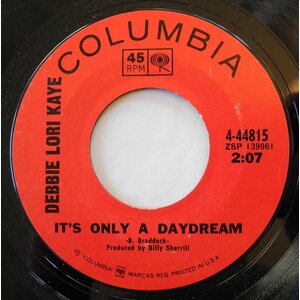
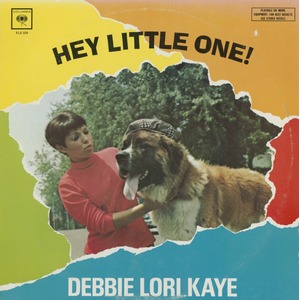
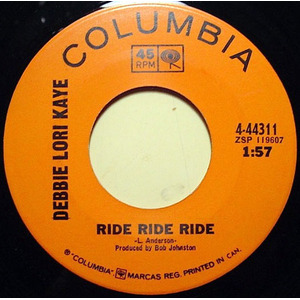
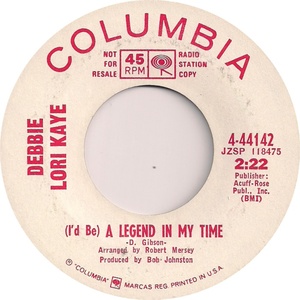
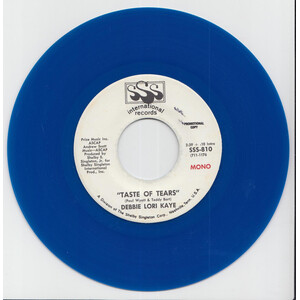
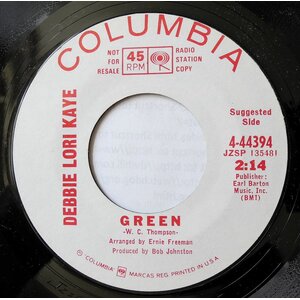
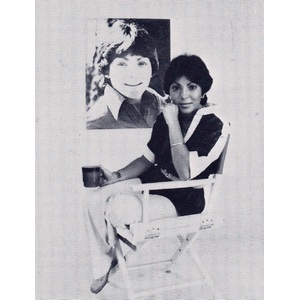
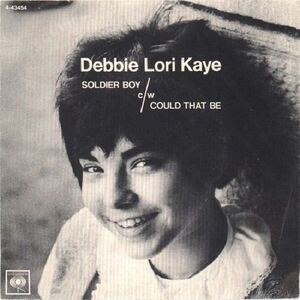
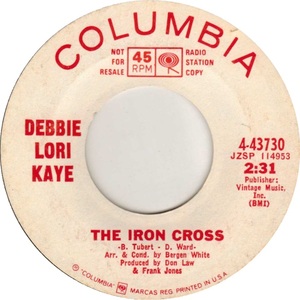
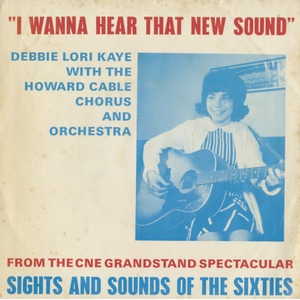
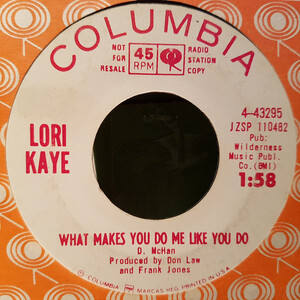
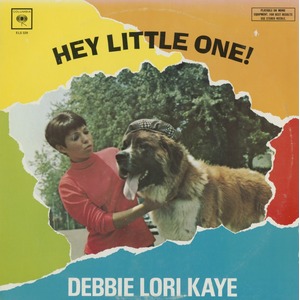
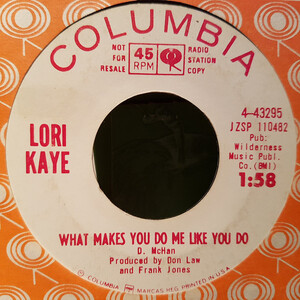
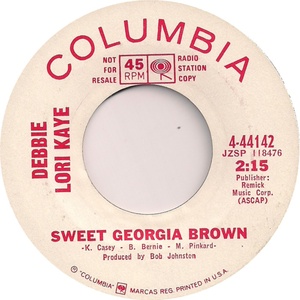
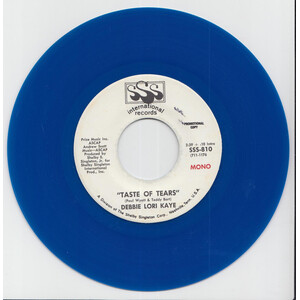
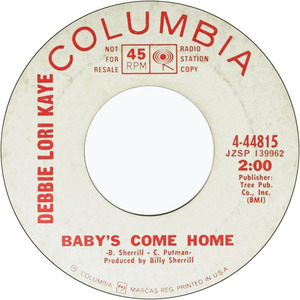
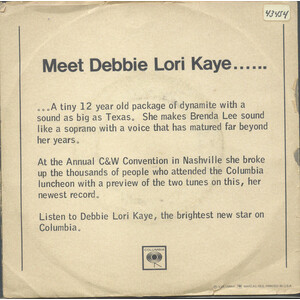
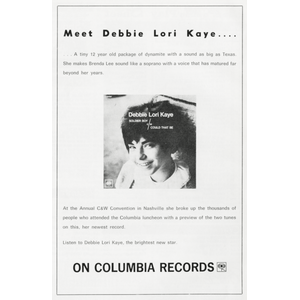
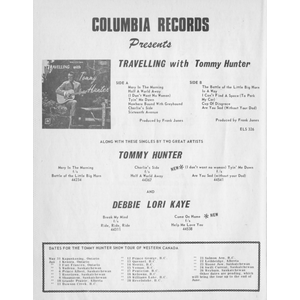
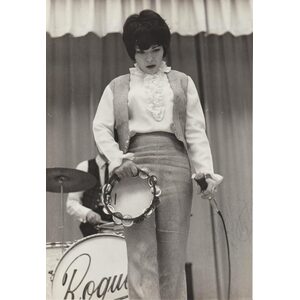
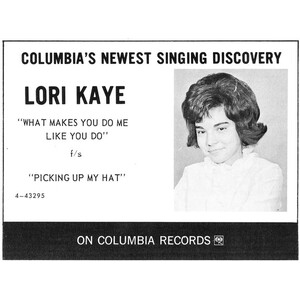
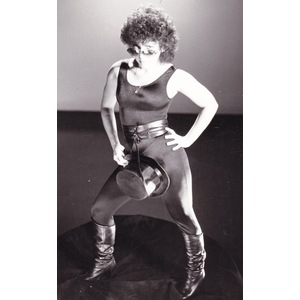
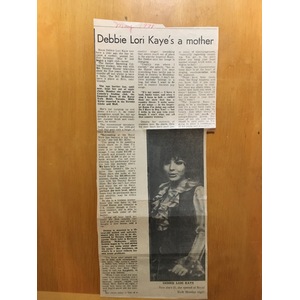
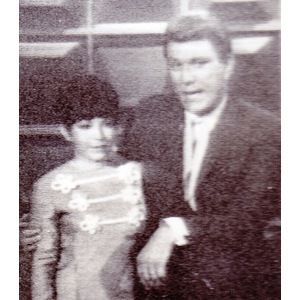

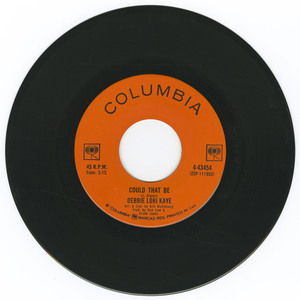

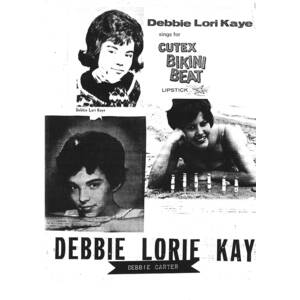
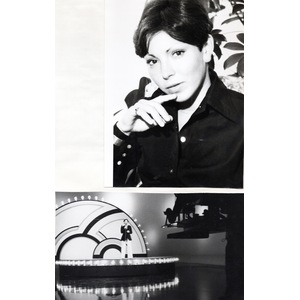
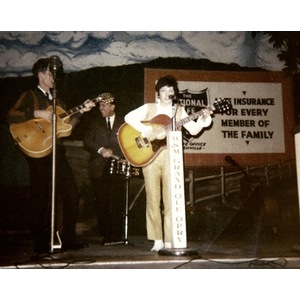
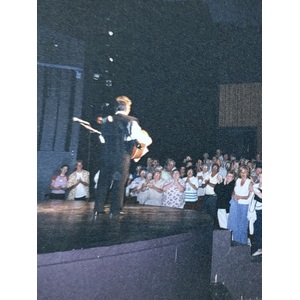

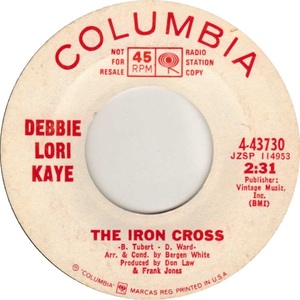
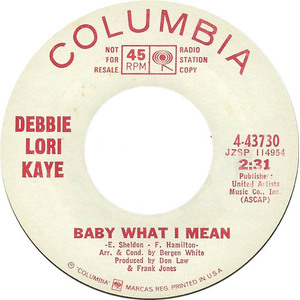
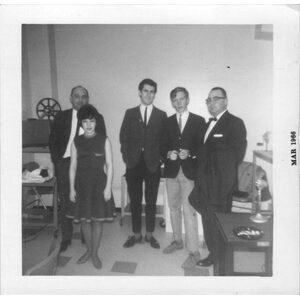

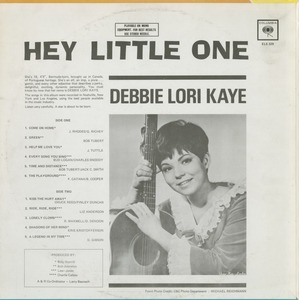
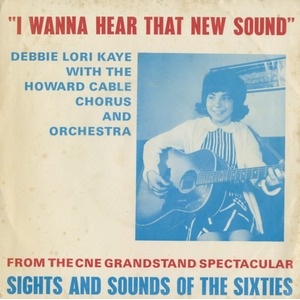
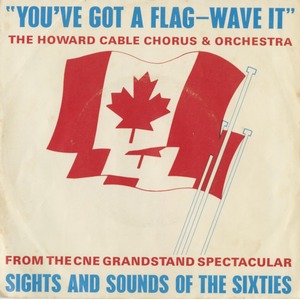
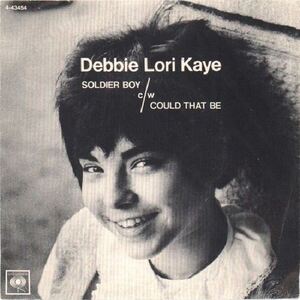
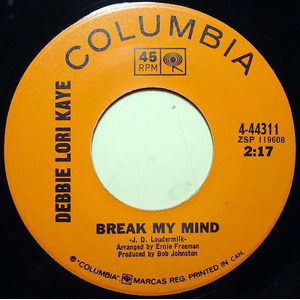
No Comments